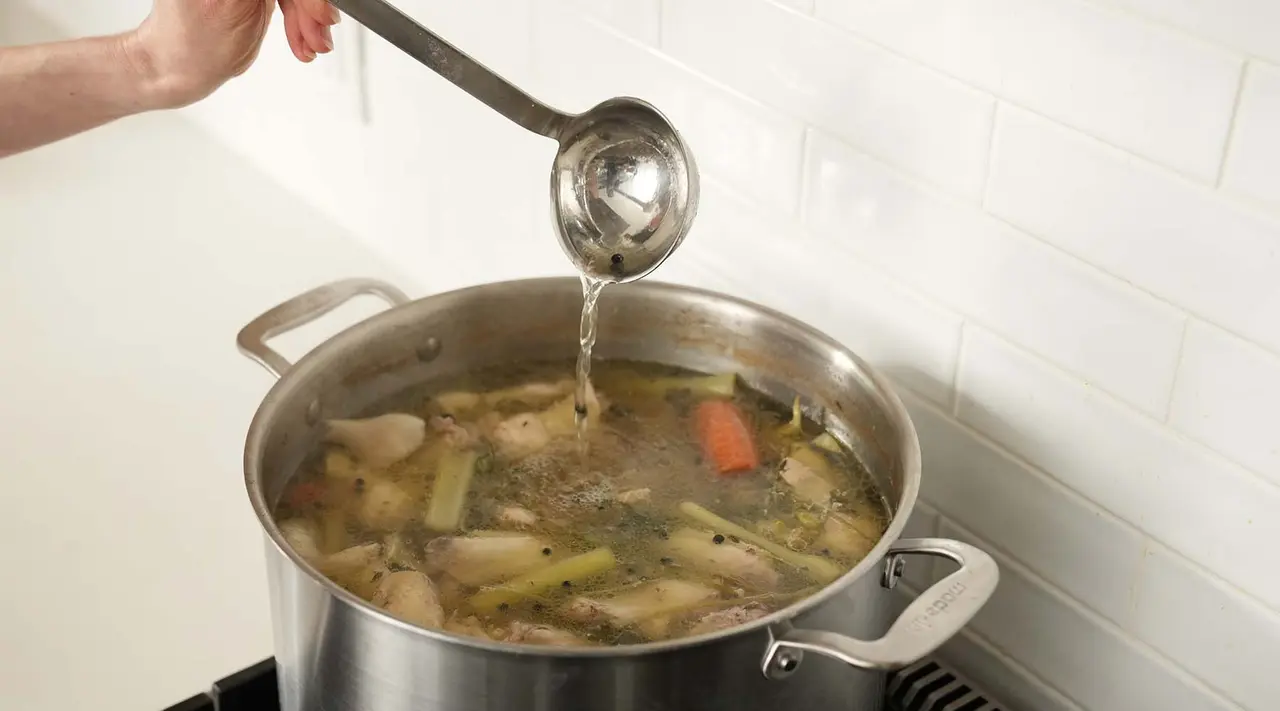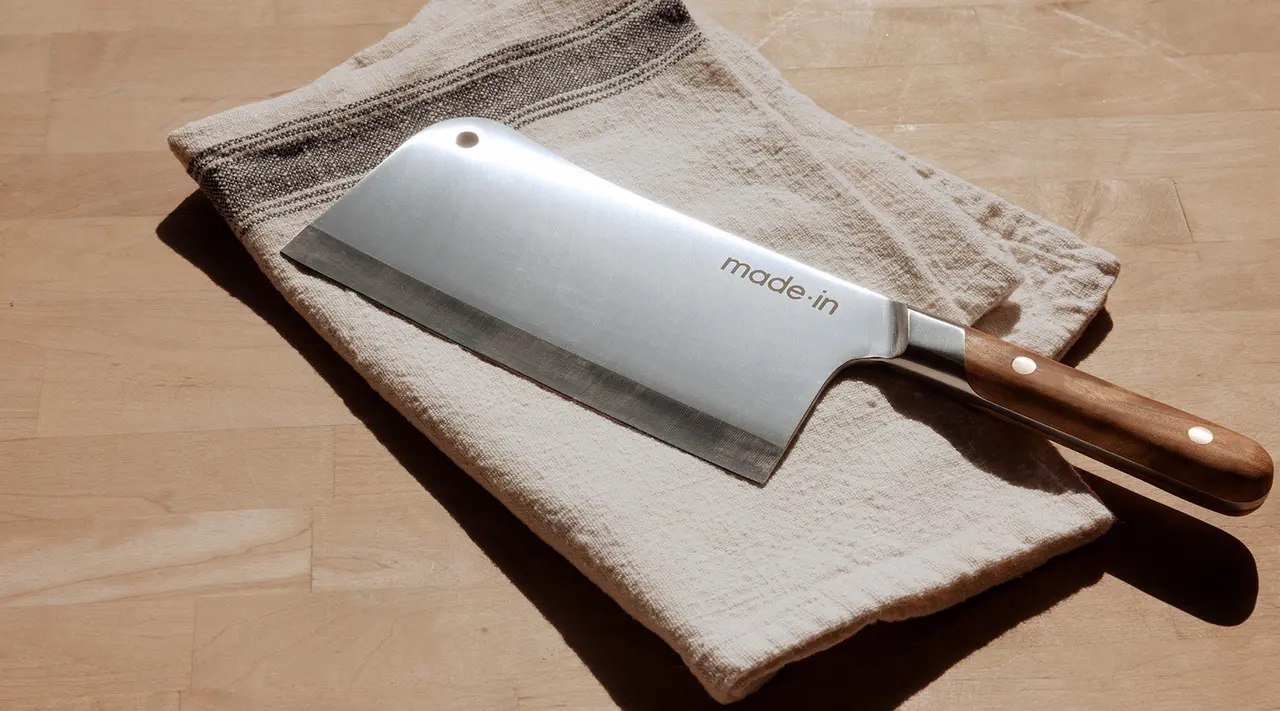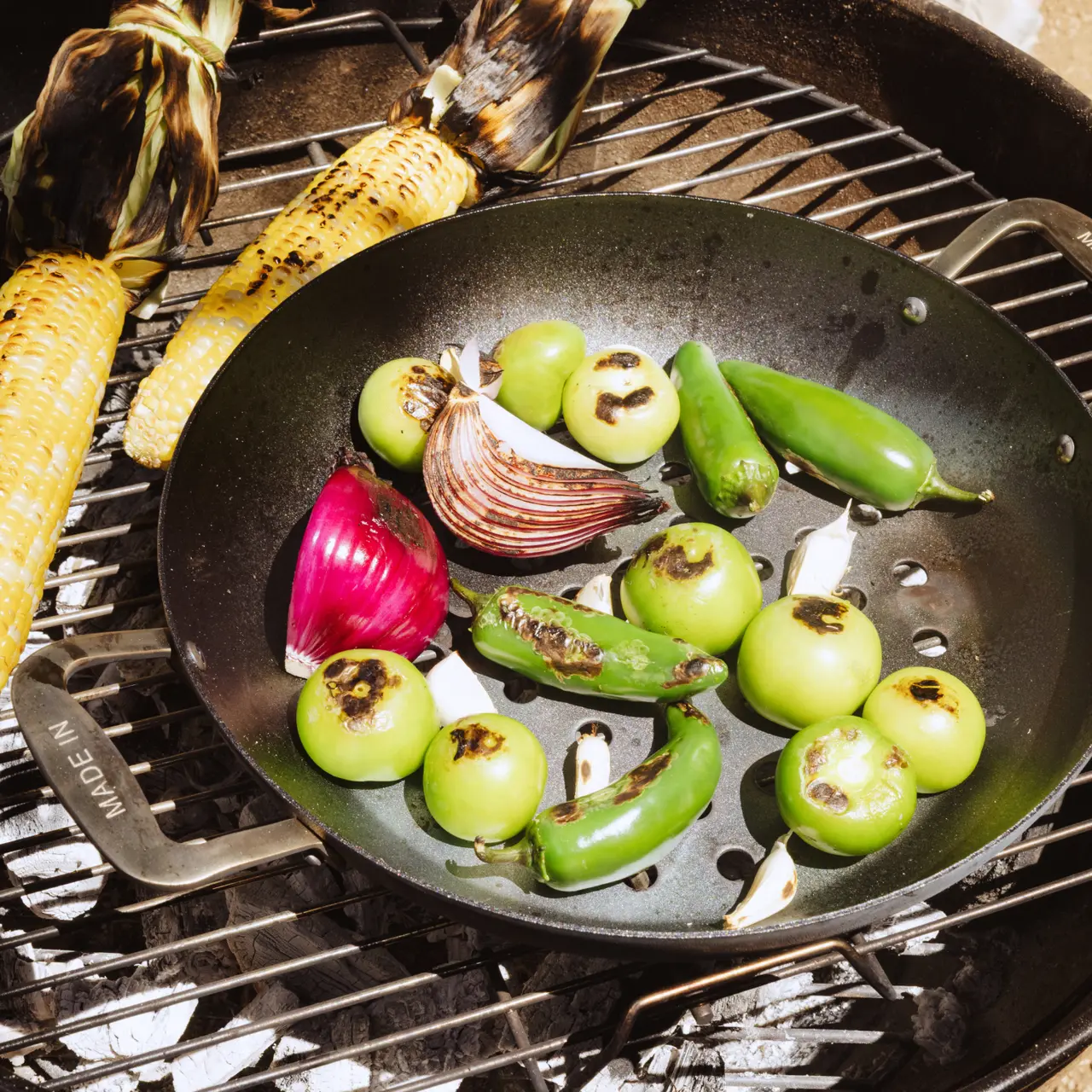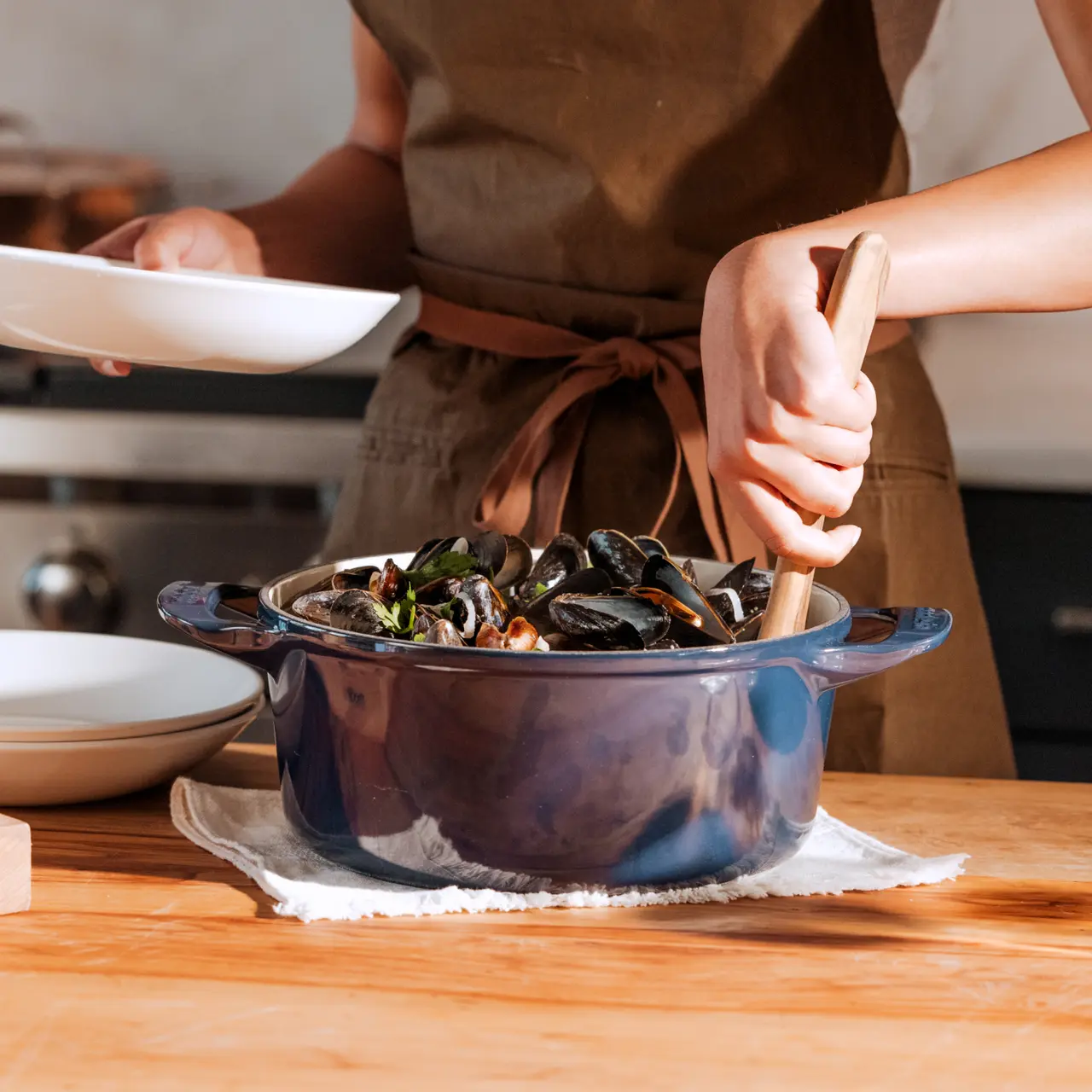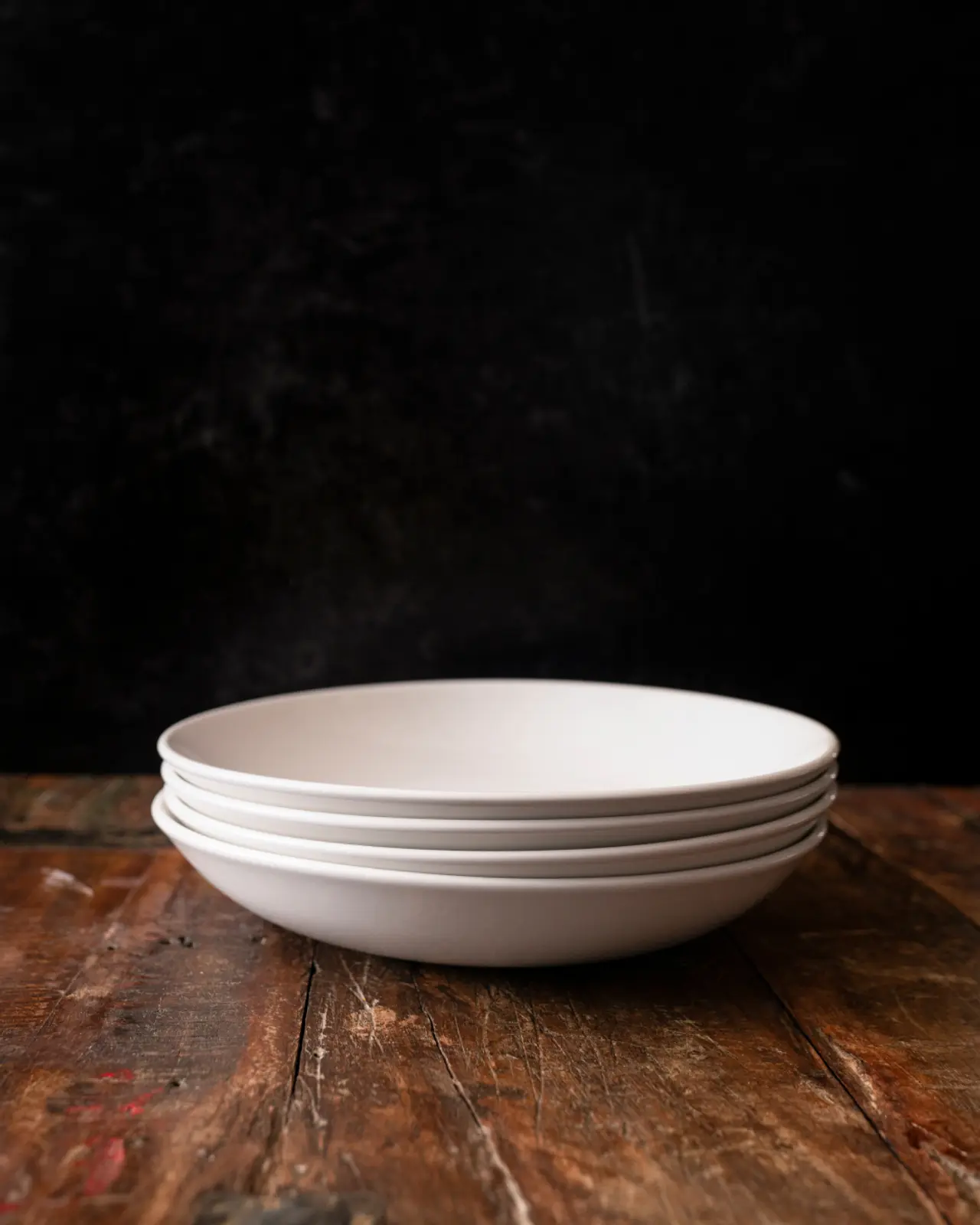The words “stock” and “broth” may seem interchangeable. Both are liquids that can form the basis of soup and enrich dishes like risotto. Plus, both can be made in our Stock Pot. The main differences between stock and broth are the length of time they’re cooked and the presence of bones. While both can be used as a base for soup or stew, stock is thicker and has a deeper, richer flavor. Find out the key differences in their preparation and how best to use them below.
What Is Stock?
Stock is made by simmering bones along with vegetables and aromatics. The bones may or may not have meat still on them and can also be roasted, along with the vegetables, to provide an even more intense flavor. Stock is also a long, but very hands-off process—it’s cooked on the stove for 4-6 hours, then strained to remove solids.
When chilled, stock should take on a gelatinous quality. This is because it’s rich in collagen, which comes from the bone and connective tissues breaking down during the cooking process. For this reason, stock is typically not served on its own, but as a part of other dishes. Stock can be used to deglaze a pan or built up into a pan sauce. It can also be used as the basis for gravy.
To make your own stock, follow this simple technique.
What Is Broth?
Broth refers to vegetables and aromatics simmered in water. Meat is often added but it can be left vegetarian as well. Compared to stock, broth is cooked for a shorter period of time—typically 45 minutes to 2 hours, which contributes to its lighter flavor. Once it’s finished cooking, the solids will be strained out and remaining liquid is anywhere from almost clear to light brown.
Unlike stock, broth remains liquid when chilled instead of thickening. For this reason, “bone broth” is somewhat misleading, as the inclusion of bones makes this broth a stock. Broth is the primary liquid used in soups, as it’s more flavorful than water. It can also be enjoyed on its own as well.
What Can You Make Stock or Broth From?
Stock and broth can be made from a variety of proteins, though the most common are chicken or beef. Seafood stock is also called fumet, while dashi, which is made from dried bonito, is considered a broth. Technically, vegetable stock is the same thing as vegetable broth as neither are made with bones, but if you want to add more body to your stock, choose umami-rich vegetables like mushrooms and roast your vegetables with some oil to add more fat.
Can You Substitute the Two?
Typically one liquid should not be substituted for another. If you try to use broth in place of stock in a pan sauce, the consistency will not be as rich or smooth. Likewise, you can use stock in a soup, but you’ll have to dilute it first. Cuisson, which is the liquid left behind post-braise, is an appropriate substitute for stock because of its body and depth of flavor.
What About Bouillon?
When you’re making soups, bouillon is another option. Bouillon is dehydrated stock that consequently has a super-concentrated flavor and often uses MSG to help maintain shelf stability. To ensure your finished product isn’t too salty, you will need to water it down, which usually involves mixing the boullion cube or powder with boiling water. This may work for a pan sauce in a pinch, but for dishes where the stock’s flavor is front and center, homemade is best.
Which Is Better: Stock or Broth?
Both stock and broth have their own culinary applications. Broth is wonderful to have on hand during the colder months for soups, while stock should also be a fridge or freezer staple all year long for gravy and pan sauces. In short, stock and broth are both important to have in your kitchen at all times.
Ready to Shop?
Whether you’re making a quick broth or simmering stock all afternoon, make sure you have the right cookware close at hand. Our Stock Pots are crafted from Stainless Clad and come in two sizes—8 or 12 quarts. This provides you with plenty of space for submerging and cooking your ingredients. Pick yours up today and discover how easy it is to make both stock or broth in its many forms.
